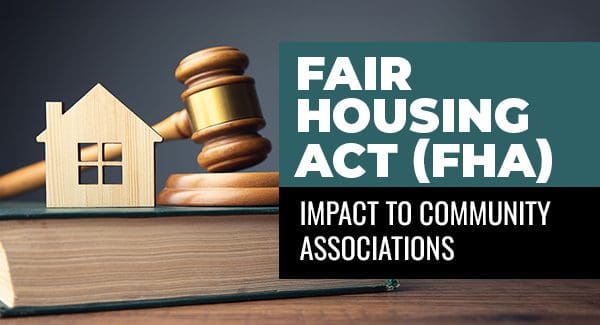Finding a place to live is about more than signing a lease or qualifying for a mortgage. It’s also about having equal access to housing without fear of being discriminated against. That’s where the Fair Housing Act comes in. This landmark law has shaped the housing landscape for decades, giving individuals protections and pathways to challenge unfair treatment.
Whether you’re a renter searching for your first apartment, a homeowner navigating property sales, or someone just trying to understand their rights, this guide will help you break down the Fair Housing Act in detail.
Quick Summary
The Fair Housing Act, passed in 1968, is a landmark piece of civil rights legislation aimed at eliminating discrimination in housing. It covers most rental and housing transactions and protects people based on race, color, religion, national origin, sex, familial status, and disability.
The act prohibits practices such as refusing to rent, charging different rates, steering tenants, or retaliating against those who file complaints. Enforcement is handled by HUD, the DOJ, and local agency, with remedies ranging from monetary compensation to legal penalties for violators.
Over time, amendments have expanded protections, making the law more inclusive and responsive to modern challenges. Understanding your rights, knowing how to file a complaint, and being aware of enforcement mechanisms are key to ensuring fair treatment in the housing market.
Historical Background of the Fair Housing Act
The Fair Housing Act was signed into law in April 1968, just one week after the assassination of Dr. Martin Luther King Jr. At the time, racial discrimination in housing was widespread and systemic. African American families and other minority groups often faced outright denial of rental applications, inflated prices, or restrictive neighborhood covenants designed to keep community segregated.
The act became Title VIII of the Civil Rights Act of 1968. Its main purpose was to eliminate housing discrimination and create fair opportunities for people to rent, buy, or finance homes. Over the years, the regulations law has expanded to include more groups under its protections and has remained a cornerstone of civil rights legislation in the United States.
Key Provisions and Definitions
The Fair Housing Act doesn’t just prohibit discrimination, it defines specific rules and protections to ensure fairness and equality in housing.
Sale and Rental of Housing
Landlords, property managers, and sellers cannot deny someone accommodation or impose different conditions based on protected characteristics.
Residential Real Estate Transactions
The act also covers mortgage lenders, appraisers, and financial institutions, ensuring fair access to loans and evaluations.
Advertising Rules
It is unlawful to publish housing ads that express preferences, limitations, or exclusions targeting or excluding certain groups.
Definitions of Terms
- Discrimination means treating someone differently based on a protected category.
- Housing includes apartments, single-family homes, condos, and even mobile homes.
- Dwelling refers to any building or part of a building used for living purposes.
Protected Classes Under the Act
When the law was first passed, it primarily protected against discrimination based on race, color, religion, and national origin. Today, the list has grown to include:
- Race
- Color
- Religion
- National Origin
- Sex (inclusion of gender identity and sexual orientation)
- Familial Status (presence of children under 18 or pregnancy)
- Disability
These protections apply across most housing situations, ensuring people are not excluded or penalized because of who they are.
Types of Housing Covered
The Fair Housing Act applies to most housing, but there are some exceptions.
Covered Housing
- Rental apartments and houses
- Homes for sale
- Condominiums and cooperatives
- Mobile homes
- Shelters and certain temporary housing
Exemptions
Some small owner-occupied buildings, private clubs, or religious organizations offering housing to members may fall outside of federal coverage. However, many state and local laws still provide protections in these cases.
Prohibited Practices and Discrimination
The act identifies several practices that are unlawful when applied to protected classes.
Rental and Sale Discrimination
- Refusing to rent or sell
- Charging different prices or deposits
- Offering different lease terms
Mortgage and Lending Discrimination
- Denying loans or requiring higher interest rates
- Steering borrowers toward less favorable terms
Harassment and Retaliation
Landlords cannot harass tenants or retaliate against someone for filing a fair housing complaint.
Steering and Blockbusting
Steering refers to directing tenants or buyers to certain areas based on race or background. Blockbusting was a historical practice of convincing homeowners to sell cheaply due to fears about minority groups moving in. Both are illegal today.
Fair Housing Enforcement Agencies
Several agencies enforce the Fair Housing Act at both federal and local levels.
- U.S. Department of Housing and Urban Development (HUD) investigates and resolves complaints.
- Department of Justice (DOJ) takes legal action in cases of systemic discrimination.
- State and Local Fair Housing Agencies often provide additional support and enforcement.
HUD plays the central role, handling thousands of complaints every year and working to ensure compliance across the country.
How to File a Fair Housing Complaint
If you believe your rights met some violation, you can file a complaint with HUD.
Steps in the Complaint Process
- Submit Your Complaint – File online, by mail, or by phone.
- Initial Review – HUD reviews the details to determine jurisdiction.
- Investigation – HUD gathers evidence, interviews witnesses, and reviews documents.
- Conciliation – HUD may attempt to resolve the case through voluntary agreements.
- Formal Action – If unresolved, HUD can file charges and refer the case to the DOJ.
Complaints must generally be filed within one year of the alleged discrimination.
Legal Remedies and Penalties
When discrimination is proven, several remedies may be available.
Remedies for Victims
- Monetary compensation for losses or emotional distress
- Injunctions requiring landlords or sellers to change their practices
- Access to housing previously denied
Penalties for Violators
- Civil fines
- Payment of damages
- Court-ordered changes in business practices
The severity of the penalty depends on the case, but violations can be costly and damaging to reputations.
Recent Developments and Amendments
The Fair Housing Act has evolved since 1968.
- 1988 Amendments expanded protections to include disability and familial status.
- 2012 HUD Rule clarified that discrimination based on gender identity and sexual orientation falls under “sex” protections.
- Recent Updates have addressed issues such as discriminatory use of algorithms in housing decisions and accessibility requirements for people with disabilities.
The law continues to adapt as housing markets and social issues evolve, making it as relevant today as it was when first passed.
Resources for Additional Support
If you’re dealing with potential discrimination or want to learn more, several resources can help:
- HUD’s Office of Fair Housing and Equal Opportunity (FHEO) provides complaint forms and guidance.
- Local Fair Housing Councils offer education and legal support.
- Legal Aid Societies may provide free or low-cost legal representation.
- Tenant Unions and Advocacy Groups can support collective actions.












